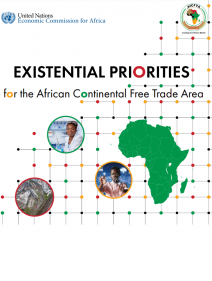The African Continental Free Trade Area (AfCFTA) is of the same order of historical significance as the establishment of the Organisation for African Unity in 1963 and the African Union in 2002. Through trade and trade-related areas, it is poised to change the economic geography of Africa by creating the African Common Market. The AfCFTA enjoys strong political will and ownership at the highest level across the continent, which greatly improves its prospects. As a rules-based institution, it will inject a degree of predictability into trade and investment across the continent, which until now has been sorely lacking. It will support long-term planning in the public and private sectors. Underlying such processes of deep integration—which entail more than just trade liberalization between member states—is the harmonization of disparate regulatory regimes. The AfCFTA’s implementation will improve the business environment through wide-ranging policy reforms across the spectrum of trade and investment facilitation, fair competition, intellectual property and innovation, digitalization, and gender and youth empowerment in trade, as well as effective settlement of disputes and compliance with obligations on the part of governments for the benefit of stakeholders.
Share this:
Release Date:
20 July, 2022
© United Nations Economic Commission for Africa

